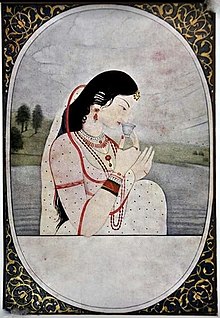Sikh titles are honorifics appended to the names of members of the Sikh community. Their form may be prefixes or suffixes to names, or the title may be used alone, in place of the name. They may denote social status or relationship, occupational field, or religious standing. When used as a form of address, they are often intended to convey respect.
List of titles and honorifics
| This list is incomplete; you can help by adding missing items. (March 2022) |

Unisex
Men
- Baba
- Bhai
- Bhai Sahab
- Choudhary
- Das, a surname regularly encountered among Sikhs, which has also been applied as a title, signifying "devotee" or "votary" (in the context of religion); also, Dasa
- Gyani or Giani
- Jathedar, 'General', 'leader'
- Kunwar
- Maharaja
- Ragi
- Raja
- Rai
- Rana
- Rao
- Sardar, 'Mr'
- Sahib
- Singh
- Swargwasi, 'deceased ' ('late' in English)
- Thakur
- Ustad, 'Master' (teacher)
- Yuvraj
- Zamindar

Women

- Bibi, in English 'Miss'
- Bhehen ji
- Jathedarni, 'General', 'leader'
- Kaur
- Maharani
- Masterani, in English teacher
- Rani
- Saheba
- Sardarni, in English 'Mrs'
- Swargwasi 'deceased '/'late' in English)
- Yuvrani
- Thakurani
- Zamindarni
Use for historical or religious figures
- Bhagat 'devotee': Bhagat Puran Singh
- Bhai, 'brother': Bhai Gurdas, Bhai Santokh (Suraj Parkash)
- Guru 'revered teacher (of a disciple)', 'enlightener': Sikh Gurus
- Gyani, Giani 'philosopher': Giani Sant Singh Maskeen
- Sant, 'enlightened' or 'holy': Sant Fateh Singh
- Shaheed, 'martyr': Baba Deep Singh, Bhai Mani Singh
See also
References
- Talbot, Cynthia (2001). Precolonial India in practice: Society, region, and identity in medieval Andhra. Oxford: Oxford University Press. p. 81. ISBN 0-19-513661-6.
External links
- https://web.archive.org/web/20080726175721/http://sgpc.net/glossary/Jathedar.asp
- http://www.maskeensahib.com/
